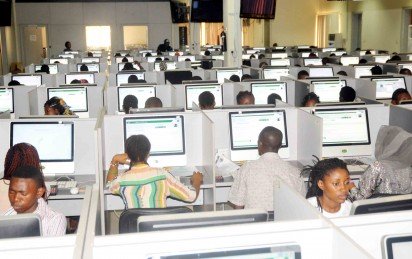Education in Nigeria
UNN ASUU alleges bias against S’East, threatens legal action over 2025 UTME results

The Academic Staff Union of Universities (ASUU), University of Nigeria Nsukka (UNN) chapter, has accused the Joint Admissions and Matriculation Board (JAMB) of deliberately orchestrating the mass failure of candidates from the South-East in the recently released 2025 Unified Tertiary Matriculation Examination (UTME).
Chairman of ASUU-UNN, Dr. Óyibo Eze, made this claim during a press briefing in Nsukka on Wednesday. He warned that the union was prepared to seek legal redress if JAMB fails to urgently review the UTME results and address what he described as a “systemic bias” against South-East candidates.
“Our office has been overwhelmed with complaints, phone calls, and visits from distraught parents and concerned citizens following the release of the 2025 UTME results,” Eze said. “The pattern of mass failure, particularly affecting candidates from the South-East and Lagos State, suggests a deliberate ploy to frustrate our children’s access to tertiary education.”
Eze pointed to the statistics released by JAMB, which showed that out of the 1,955,069 candidates who took the 2025 UTME, more than 1.5 million scored below 200. He claimed that a significant portion of these low scores came from the South-East and areas with a high concentration of Igbo populations.
He alleged that students from the South-East are often required to score much higher marks to gain admission into competitive courses, unlike their peers in other regions who, according to him, can secure places in top courses like medicine with scores as low as 120.
The ASUU chairman specifically cited the case of the University Secondary School, Nsukka, where no candidate reportedly scored up to 200 in the UTME. He described the outcome as both “unbelievable and unacceptable.
“This is a school renowned for academic excellence, with students who have consistently performed well in internal and external examinations. For JAMB to say none of them scored up to 200 raises serious questions about the integrity of the grading process,” Eze said.
He urged South-East governors and leaders to speak up against what he described as educational injustice and a threat to the future of the region’s youth.
“I am not against penalizing those who engage in examination malpractice, but punishing an entire centre or region for the wrongdoing of a few is both unjust and oppressive,” he added.
Eze called on JAMB to urgently review the UTME results and take corrective action. He warned that failure to address the situation could lead to widespread protests and legal challenges.
“This is no longer a regional issue. It’s becoming a national crisis that demands immediate attention,” he said.


